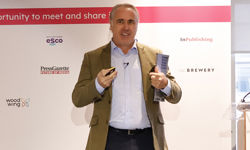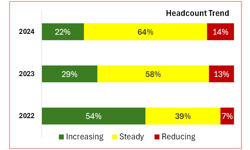This year, Time Out turns 43 – perhaps not a landmark birthday in the traditional sense, but it’s proving to be a big year for us. Four decades ago, Time Out’s founder, Tony Elliott, then in his student days, published a single-sheet fold-out that clued in Londoners on all the music, art, cinema, protests and sit-ins worth knowing about in their swinging capital. From these counter-cultural beginnings, Time Out has grown into a leading international, multi-channel media company. It now spans 24 countries and provides urbanites around the world with inspiration for making the most of their cities – supplying them with the very best information and booking opportunities in their local arts and entertainment scenes, as well as for food, drink, shopping and travel.
New York, New York
Time Out first translated its successful editorial model to a city outside the UK in 1995, with the launch of Time Out New York. And ten years ago, we began to develop the Time Out international business in earnest, through licensing. We are thrilled to have recently joined the 10th anniversary celebrations for our first two licensees – Time Out Istanbul and Time Out Dubai. Today, Time Out is present in 34 cities.
Our international expansion, and the success of our licensees, has continued to be a source of pride here at Time Out – and we are particularly gratified to have received recognition for our achievements within the industry, having scooped the International Consumer Magazine of the Year title at the Professional Publishers Association Awards two years in a row, in 2010 and 2011.
To complement the acclaim, we’ve also seen some incredibly exciting international developments in recent times, including a global partnership deal with Nokia and the launch of iPhone and Android apps (with more than 1 million downloads and counting). Within the past year, there have been Time Out launches in new cities including São Paulo and Melbourne, and, so far, 100,000 people have attended Time Out Live events across the globe – including a Q&A session with the legendary Hollywood director Oliver Stone in London; a set from globetrotting DJ Gilles Peterson at the Time Out Café in Tokyo; and the premier of the hit Australian gangster film Animal Kingdom in Sydney.
As we stand now, Time Out has a worldwide audience of over 16 million across all our channels – our city magazines, our comprehensive online presence, our mobile apps, travel guides, events and partnerships. And our scope continues to grow as we develop relationships with new licensees, and expand the reach of the Time Out Group’s wholly owned media.
Digital innovation
With our global unique-user count now closing in on 8 million per month, digital innovation is central to our strategy; Time Out’s online editorial goes far beyond reproducing the features that appear in our magazines. Instead, Time Out’s websites and apps are filled with custom content, designed to deliver a vast array of unique local recommendations and cultural insight, as well as to enable consumer bookings, to tailor content according to our users’ personal preferences and to ignite debate and close interaction with our audience. Our technical platform has been uniquely developed to support a new era of rapid global expansion and scalable commercial opportunities. We envisage a time when we reach 50 million people across the world.
Picking licensees
When it comes to selecting Time Out licensees, our goal has always been to find fantastic local partners who understand the Time Out brand and who share our values of editorial independence and commitment to quality. When we find a publisher who can match those values with innovative marketing strategies and fresh commercial ideas, we know we are working with a licensee that can take the brand, and international network, forward.
Equally, we look for partners who want to develop the whole repertoire of opportunities that the Time Out brand represents. Ten years ago, the possibilities available to potential licensees were limited, more or less, to publishing a magazine – while we worked with our partners to develop a truly local voice, and have always been flexible about frequency, the template we gave them was essentially a version of the Time Out London magazine. Today, it’s a different world. Now, a highly motivated and forward-thinking licensee would take on not only print publishing but also seek to expand their digital business, planning mobile apps and live events into the mix as part of a diverse multi-platform portfolio. Indeed, we’ve recently worked with licensees to help them launch online-only versions of Time Out, with the website, rather than a print offering, acting as the standard-bearer for the brand in their home cities.
We’re also increasingly looking at helping our licensees move into interesting new areas. We’ve found that the Time Out brand has the potential to appropriate a variety of physical spaces within any given city – whether it’s a Time Out Café & Diner, such as the one we have in Tokyo, or an exciting redevelopment project such as that undertaken by our licensees in Portugal, who won a tender to turn a large heritage building in Lisbon’s city centre into a Time Out-branded art, dining, live-performance and retail space.
Ultimately, we try to find people we feel we will be able to work with forever. We’re not in the business of simply doing deals, signing people up, then switching partners around. We want to work with the people who will be committed to the brand for many, many years – just as we are here in London.
Transactional potential
Most recently, Time Out, both in London and the US, has been looking more and more at the transactional potential of our digital portfolio. As well as making it possible to book restaurants and event tickets directly through our sites, we recently launched Time Out Deals, which offers our audience a range of bespoke discounts – and we are now developing our own ticketing system. The core digital objective is to engage with our audience at every step in their cultural journey, from deciding on which events to attend or which restaurants to visit, through to planning their nights out with friends, to purchasing their tickets directly with Time Out – and even harvesting and sharing their post-event feedback. And this ‘journey’ with the user can be replicated for Time Out websites across the world.
Clearly, our licensees’ businesses are at various stages of development. Some are traditional print publishers in transition, on their way to becoming fully rounded digital-media companies. In other areas, meanwhile, we’re working with thoroughbred digital natives, such as our licensees in Japan, who approach Time Out from an online-only perspective. We recognise a huge scope for digital-only editions, and that’s exactly the approach we’re taking in many of the new cities we’re entering – such as Paris, which is just about to launch as a wholly owned business within the Time Out Group.
Given the nature of our products, our licensees work hard to develop outstanding local content. That’s driven us as a licensor to think hard about the value we can deliver to a licensee. We see ourselves as a business partner, friend and consultant for our licensees. The torrent of energy and innovation generated by the network means we need to be highly driven ourselves, constantly circulating new ideas that can be profitably developed under the Time Out banner, and which our licensees can adapt and adopt.
Flow of ideas
In that way, one of our key functions is to be an ideas bank, with London – which is where the international business is based – acting like the hub of a wheel with each spoke leading out to a successful Time Out licensee business. Increasingly, though, licensees are bypassing the centre, cooperating and sharing ideas directly across territories. The more licensees we have, the more content becomes available, the more ideas we can share, the more success stories we have – the model exponentially generates its own momentum. And, excitingly, now that some of our licensing relationships go back longer than ten years, a real sense of community has emerged; there are now networks within the network, such as in the Asia Pacific region, sharing great ideas and collaborating on regionally relevant editorial and promotional projects.
In addition to this is a committed approach to international multi-territory sales. This has always been something of a Holy Grail for our licensing network, as a unified global commercial strategy presents a fantastic opportunity for the network as a whole. Our licensees, in every corner of the world, can expect to benefit from significantly up-scaled advertising revenue, as we leverage the power of the network to pitch for completely new kinds of business.
Ultimately, as we increase the pace of our global expansion, the opportunities that digital presents will lead to a more integrated mix of wholly owned Time Out hubs and licensees. And we feel that Time Out represents a stronger proposition than ever for a prospective licensee. Our strategy of direct international expansion into key markets is clear and ambitious. And we’re excited about the opportunities for new licensees who are ready to take on that challenge. We’re fascinated to see where the next ten years will take us.










